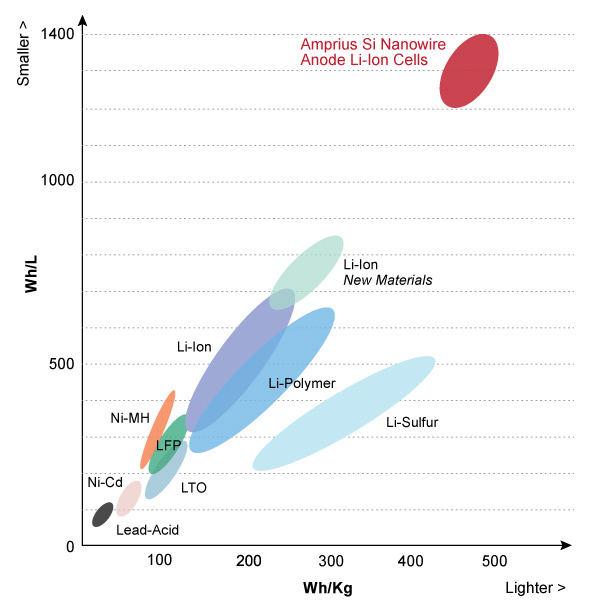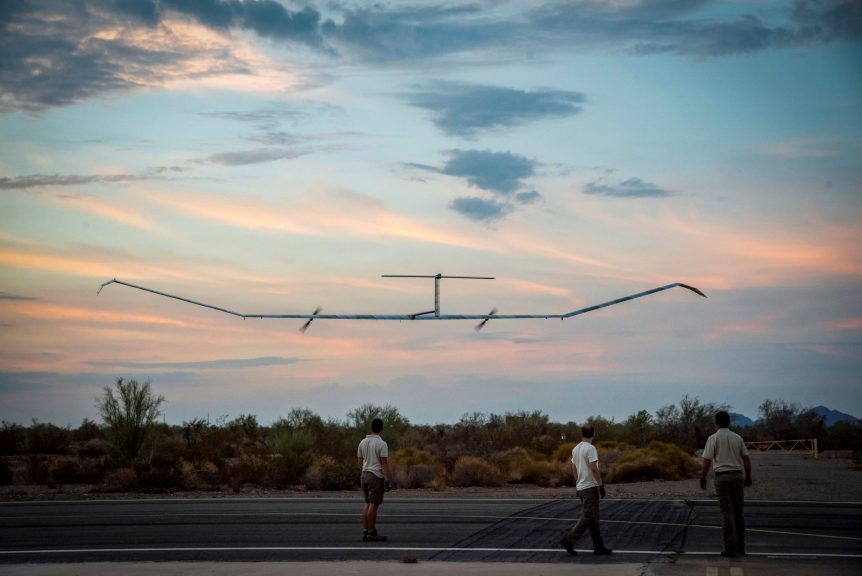Amprius has announced a 500 Watt-hour per kilogram cell, essentially doubling the energy density available up to now. Remember, though, that cell-levels of energy drop as the cells are incorporated into modules and packs, carrying the burdens of containment packaging, bus bars, and battery management systems (BMS) that lower total output. Pack levels will be lower. Slow Progress This comes as the culmination of at least 14 year’s work, starting with Yi Cui’s work at Stanford University. Your editor first saw him at a 2009 CAFE Foundation symposium at the Hiller Aviation Museum in San Carlos, California. He was a proponent of the 10X battery, which at that time would have meant 10 times the energy storage of then typical cells, or around 10 times the 200 Watt-hours per kilogram then considered to be a respectable achievement. This blog reported in 2013, “According to Green Car Congress, ‘The company has also demonstrated greater than 650 and 700 Wh/L batteries with …
Amprius, Airbus, Silicon and Batteries
Batteries are a tough study. We see many different roads being traveled in attempts to reach the Nirvana of the lightest, most powerful energy storage cell ever. We see continuing shortfalls because of the much chemistries that seem never to work out as hoped. Several recent articles, though, showed links that forced your editor into a deep study of battery developments first heard about a decade ago. These involved Yi Cui, Stanford professor and battery guru, silicon electrodes, and a new electrolyte that holds thing together. Presaging recent developments, your editor first heard Yi Cui present at the 2009 CAFE Foundation Electric Aircraft Symposium. Then, he predicted, based on the theoretical limits for silicon-based electrodes in batteries, that we would see 10X (greater energy density than then available) batteries in the not-too-distant future. A decade later, his company Amprius may be edging toward that goal with new funding from Airbus. Since then, Cui, his students and associates have helped boost …
Amprius’ Silicon Nanowire Batteries Fly – For 25 Days
Sunnyvale, California-based Amprius kept a low profile for several years, despite its founder, Yi Cui, being a leading light in battery development. Their December 4th press release, though, finds the company to be in a more open mood, their advanced lithium-ion cells with 100-percent silicon anodes having flown Airbus’ Zephyr High Altitude Pseudo Satellite (HAPS) for over 25 days, “setting a new endurance and altitude record for stratospheric flight.” This milestone represents a great leap forward since Alan Cocconi flew his So Long solar-powered model for 48 hours, the first of many projects of which he would be an integral part, and the first solar airplane to fly overnight. He worked on the General Motors EV1 and Eric Raymond’s Sunseeker 1 – just a small part of the automobiles and aircraft which he would help create or refine. Your editor first saw Cui at an early electric aircraft symposium nine years ago. Cui discussed the benefits of developing silicon anodes …



